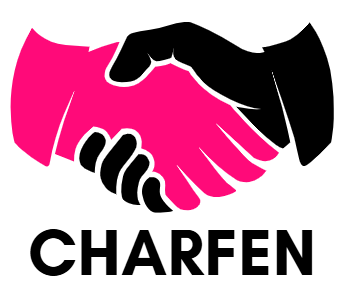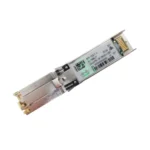A BIN sponsor is an authorised financial institution that allows other businesses to issue payment cards, using its own Bank Identification Numbers (BINs). These numbers are those first six or eight digits you will notice on any payment card, silent fingerprints, unique to every sponsoring bank or provider. Through BIN sponsorship, a non-bank fintech or programme manager can launch cards under the regulatory envelope and banking relationship of an established player.
Many UK businesses seeking to issue prepaid, debit, or credit cards lack a banking licence. This is where a BIN sponsor steps in, offering its regulatory status and banking infrastructure. You can think of the BIN sponsor as your gateway to the complex world of Visa, Mastercard, or other scheme networks. The sponsor ensures that card programmes meet both the legal requirements and the precise scheme rules. In return, you gain access to issuing capabilities, without the labyrinthine challenge of securing a full banking licence yourself.
The Role of BIN Sponsors in Payment Processing
You will find that the reach of a BIN sponsor extends beyond just regulatory permissions. Without their involvement, many innovative card solutions on the market would struggle to exist. At every point of a transaction, acceptance, authorisation, settlement, the BIN sponsor’s infrastructure acts as anchor and gatekeeper.
When a card is swiped, tapped, or keyed in, those same BIN digits announce which network to route the transaction through, identifying the sponsor responsible for supervising that card activity. The sponsor becomes accountable for scheme compliance, anti-money laundering controls, and robust customer due diligence. If you are building a card programme, a BIN sponsor operates as both shield and steward, sitting front row in the scrutiny of regulators and international card schemes alike.
You could liken the relationship to a theatre: your brand appears on the playbill, but the BIN sponsor manages most of the backstage logistics, ensuring that the curtain always rises on time. Your customers may never know their name, but they will certainly feel their influence in every smooth payment.
How BIN Sponsorship Works
At first sight, BIN sponsorship appears straightforward, you team up with an authorised institution, and suddenly your business can legally issue cards. Yet, as you peel back the layers, it becomes clear that careful choreography is at play.
You, as the card programme, partner with a BIN sponsor who already holds a valuable relationship with card networks like Visa or Mastercard. The sponsor provides its BINs and agrees to house your cardholders under its regulatory umbrella. You develop your offering, app interface, brand design, customer onboarding, while the sponsor manages scheme settlements, fraud monitoring, and reporting requirements.
In practice, it can be a multi-party collaboration. Technology providers, core processors, and customer support vendors may all knit together with the BIN sponsor, forming a tapestry of responsibilities. The sponsor, eventually, is the trusted party that card schemes recognise and hold accountable, so you will regularly work through their compliance checks and performance reviews. A word of caution: regulatory and scheme rules evolve often. Your BIN sponsor’s expertise can be a vital lifeline amid changing tides.
Benefits and Challenges for Businesses
You might be drawn to BIN sponsorship thanks to its power to reduce time-to-market. Rather than figuring the years-long application for your own principal membership or banking licence, you can ride on the back of an established entity. Access to mature infrastructure, fraud monitoring, and regulatory expertise come as standard.
But you will find that not everything is smooth sailing. Costs can be significant, particularly if transaction volumes are modest or your product carries higher compliance risks. Your flexibility may meet limitations too. BIN sponsors will sometimes impose their own requirements, especially in response to evolving regulatory scrutiny from bodies like the FCA or the card schemes themselves.
Businesses benefit from speed and regulatory assurance but must deal with a certain dependency on their chosen sponsor’s processes. If you are scaling fast or innovating with new types of payments, being tied to a sponsor can start to feel constraining, you rely on their risk appetite, agility, and sometimes, their willingness to adapt. When selecting a sponsor, weigh the pace of your ambition against their appetite for innovation and their history of scheme relationships.
Thoughts on the Right BIN Sponsor
Selecting a BIN sponsor is seldom as simple as ‘lowest fee wins’. You must scrutinise them with the same care you dedicate to your own customer propositions. What will you want to explore? Experience within your sector, a proven record of uptime, appetite to embrace new technology, and genuine support levels all demand close attention.
Ask: Does the sponsor grasp your vision for cardholder experience? Is their compliance strict but not suffocating? Ask about their scheme relationships and approach to market changes. Not all sponsors think alike: some are nimble and collaborative, while others focus on scale, with tight controls and less flexibility.
Study their onboarding timelines and transparency in service fees. In the case that issues arise, how swiftly do they resolve outages or regulatory questions? Speak to current and former partners, peer insight can tell you more than any sales deck. You will want to choose someone that grows alongside you, not someone who stops you in your tracks.
And Lastly
The world of card payments rarely rewards those who do not pay attention to the detail, and BIN sponsors sit in the very engine room of this industry. You will find that understanding their role gives you unusual control and strategic oversight, whether you are a fintech upstart or an established business seeking a new revenue stream. Choose wisely and a BIN sponsor becomes a silent partner driving smoother payments for your customers. Or, if you gloss over the nuances, even the best product could find itself stalling at the starting line.
Curious where your next transaction begins? Sometimes, it starts with a single six-digit number and a lender willing to take the regulatory weight so you can concentrate on what matters most: making your mark in the competitive payments arena.












